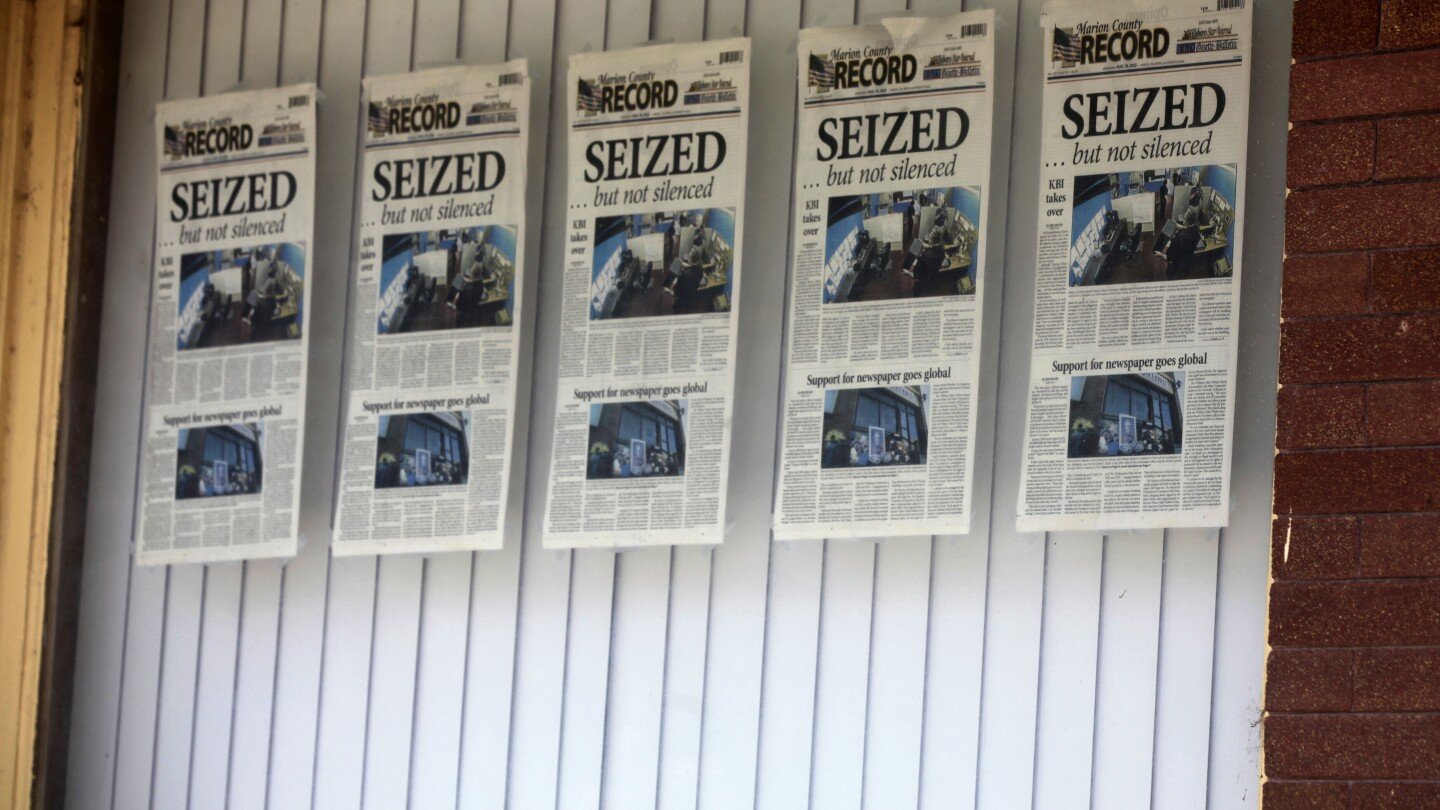Kansas authorities must destroy all electronic copies they made of a small newspaper’s files when police raided its office this month, a judge ordered Tuesday, nearly two weeks after computers and cellphones seized in the search were returned.
The Aug. 11 searches of the Marion County Record’s office and the homes of its publisher and a City Council member have been sharply criticized, putting Marion, a central Kansas town of about 1,900 people, at the center of a debate over the press protections offered by the First Amendment to the U.S. Constitution.
Attorney Bernie Rhodes, who represents the newspaper, said a judge ordered authorities to hand over those electronic records and destroy any copies they have of them along with all photographs that officers took during the raids.
The local prosecutor and sheriff agreed investigators shouldn’t keep that evidence, but Rhodes insisted on a court order to document it. It won’t be clear what files were on the drive until Rhodes gets a copy.



It’s been 2 weeks. In any case kbi apparently investigating the reporters, not the cops. (I noticed that going back and reading it again.)
It doesn’t take 2 weeks to see that the reporters didn’t do anything wrong, that the warrant was uncalled for and seizure’s inappropriate, or to see that people are abusing their power to protect their friends, or that the efforts were pretty blatant retaliation.
Did you read the search warrant application? I did.
There’s definitely probable cause for the newspaper search.
The only reason I can see to be upset about this search and seizure is that the local PD or prosecutor should have referred the case out to state authorities due to the nature of the documents (proving the local police chief was engaged in some kind of tax fraud involving a local restaurant; the newspaper shared it with the town council and police internal affairs), which the newspaper managed to obtain, apparently by violating the consumer fraud and abuse act, identity theft, or both. There’s no crime exception for journalists, even if they do it to uncover government corruption.
Did you read the Privacy Protection Act, I did. let me quote the relevant section here for you:
Neither condition was met. the journalists themselves did nothing wrong. they received the information. They broke no laws to do so. The standard way of dealing with that is, instead, to get a subpoena for the specific files. they did not do that. nobody was at risk of death or serious bodily injury as a result of not getting the files- and it’s patently ludicrious to suggest that the newspaper would delete their files when they could just as easily appeal such a subpoena- considering that pretty much everybody involved on the sheriff side had a bone to pick with the paper (who was investigating the sheriff for corruption) and could in no way be impartial investigators.
That section does not seem relevant. That’s for government seizures of attorney work product.See:
The section of law cited in the warrant is 18 USC 2721 and context makes clear it’s talking about the newspaper employee’s false certification as to one of the enumerated reasons in section (b)(1)-(14).
Which one of those do you contend applies to newspapers?
This is also not a case of journalists reporting information received unwittingly from a third party who obtained it illegally. That would not be a crime as far as the newspaper is concerned.
Rather, this is a case of a newspaper employee falsely certifying a government form to illegally access records firsthand.
Also, the newspaper admits to police it falsely certified it’s request for information.